Commissioned by Artistic Director Adolphe Binder, Bon Voyage, Bob marked a turning point for Tanztheater Wuppertal Pina Bausch. It was the company’s first newly created work since the death of Pina Bausch, entrusted to Alan Lucien Øyen alongside Dimitris Papaioannou. Øyen worked with the ensemble in the historic Lichtburg studio, where Bausch herself had developed much of her repertoire, forging a deep connection with the dancers that would continue in later collaborations.
The dancers are uniformly magnificent; even in repose, they have an intensity and a commitment that makes it impossible to turn your gaze away.
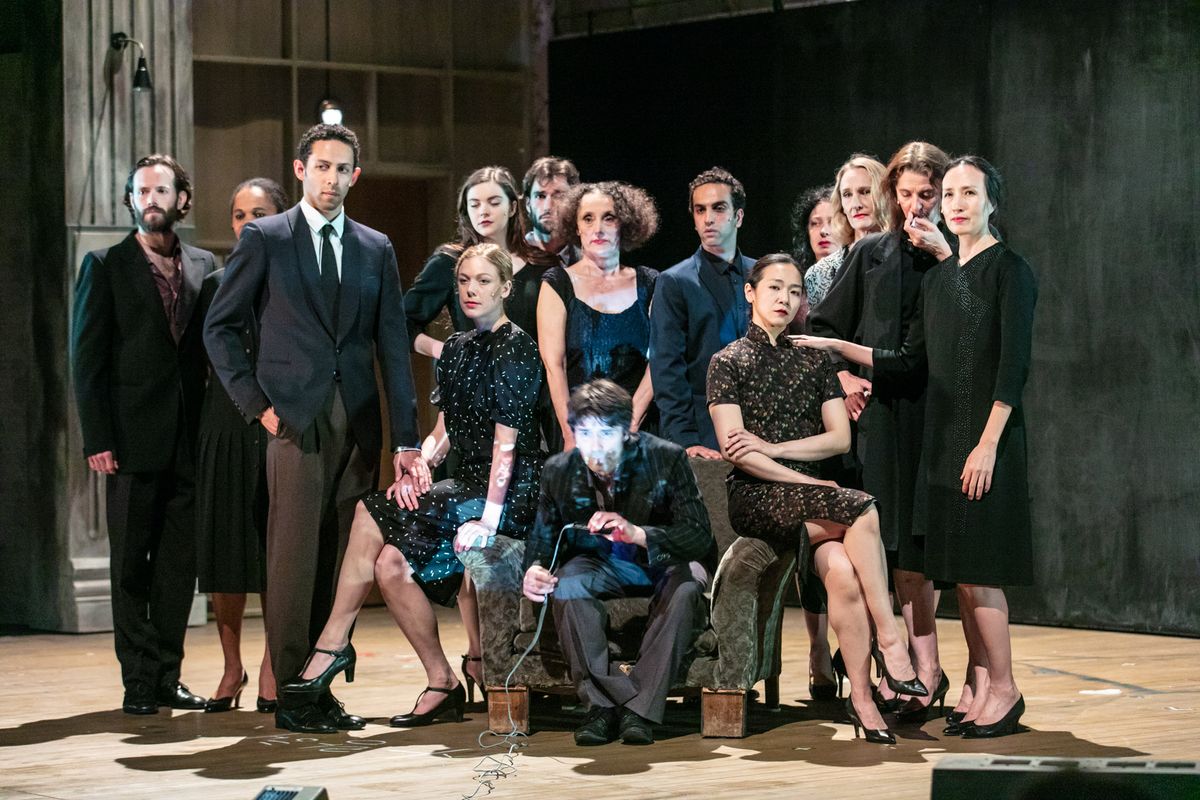
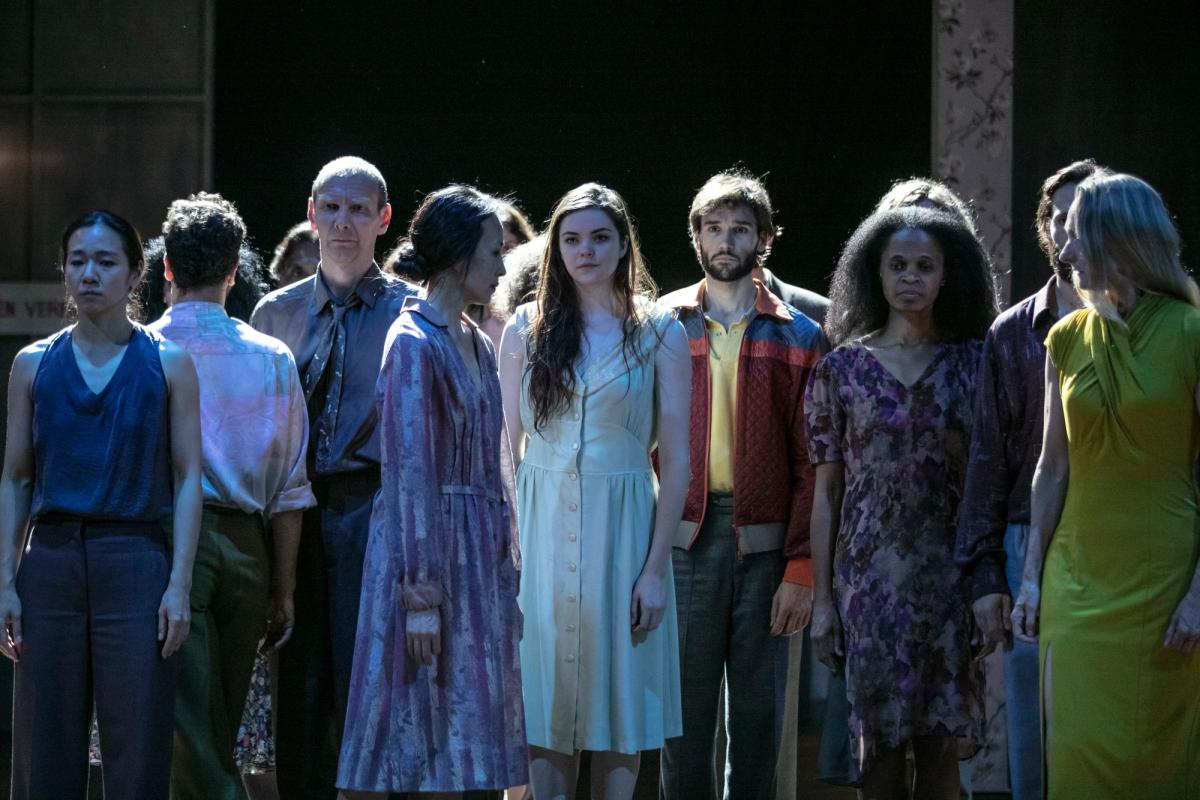
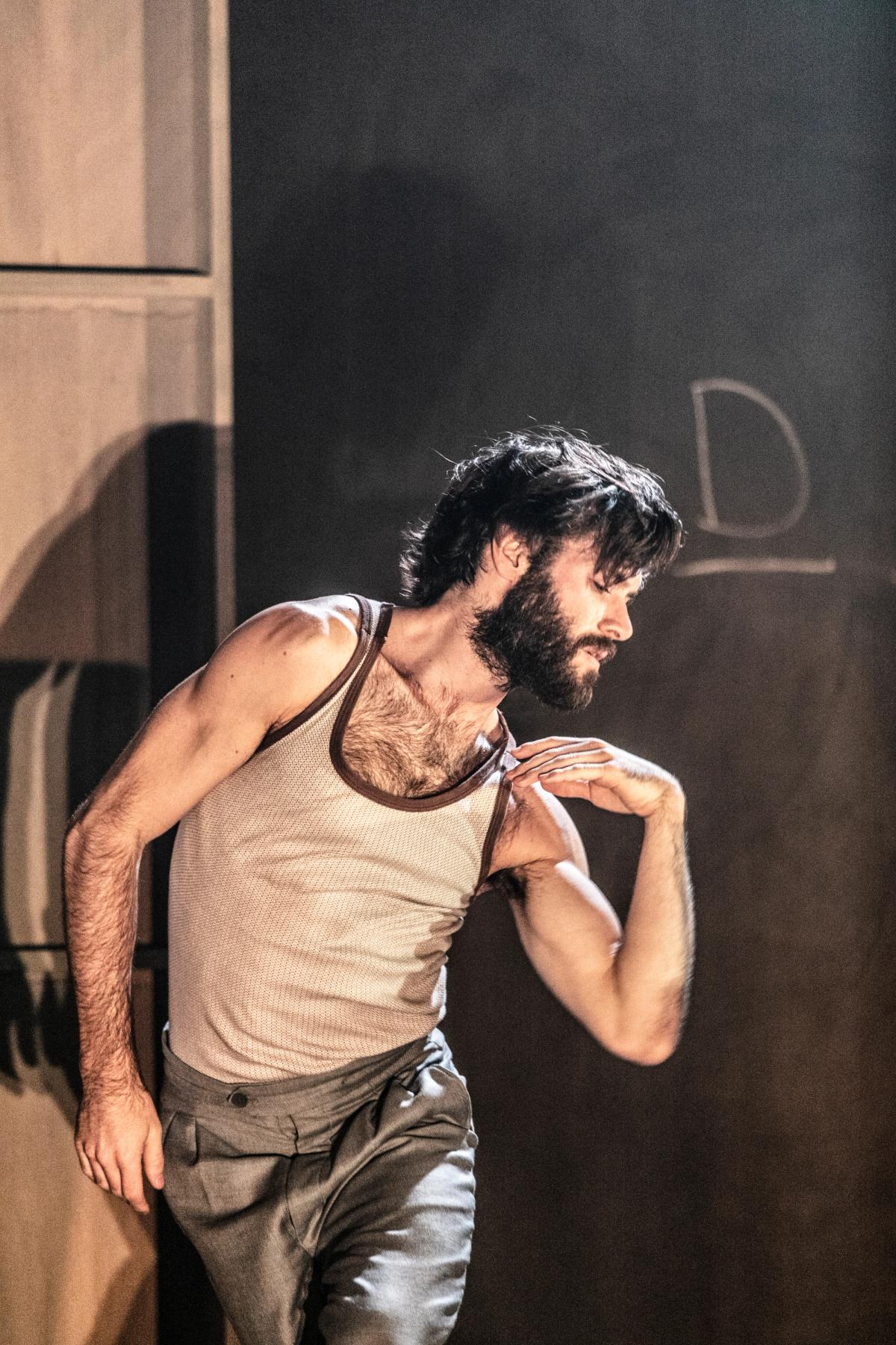
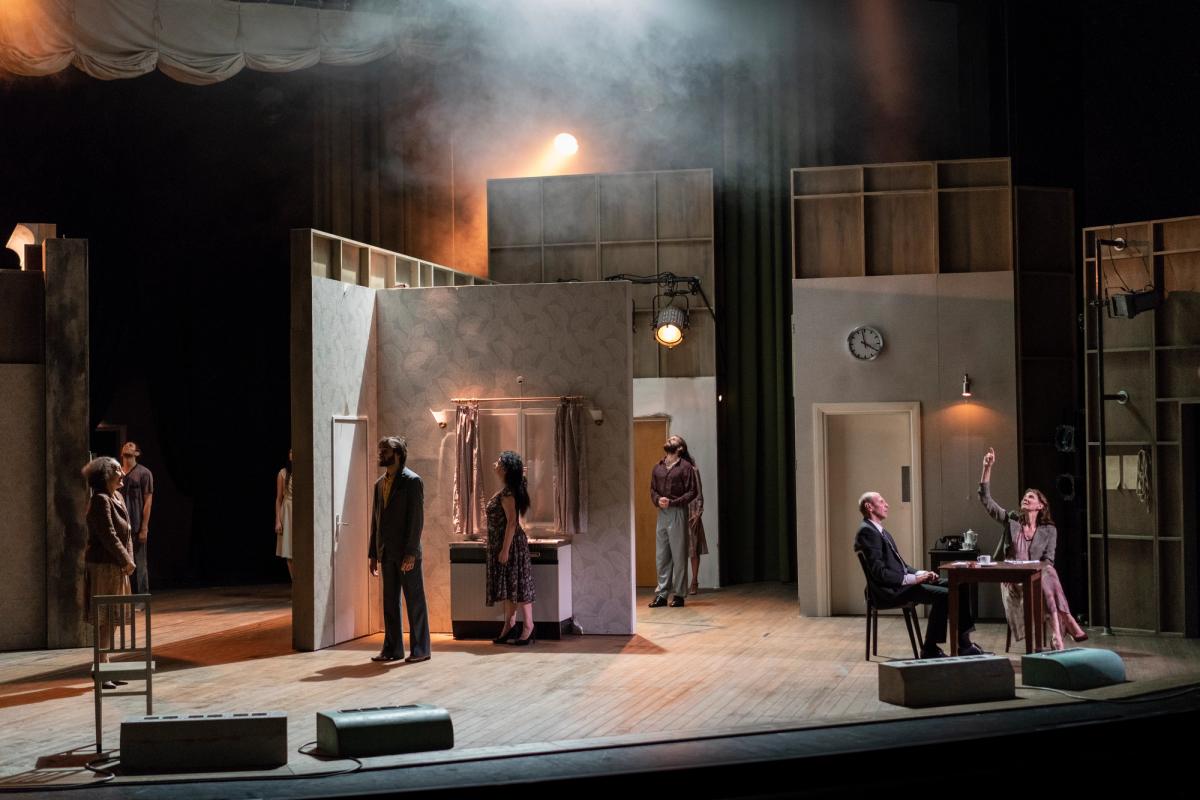
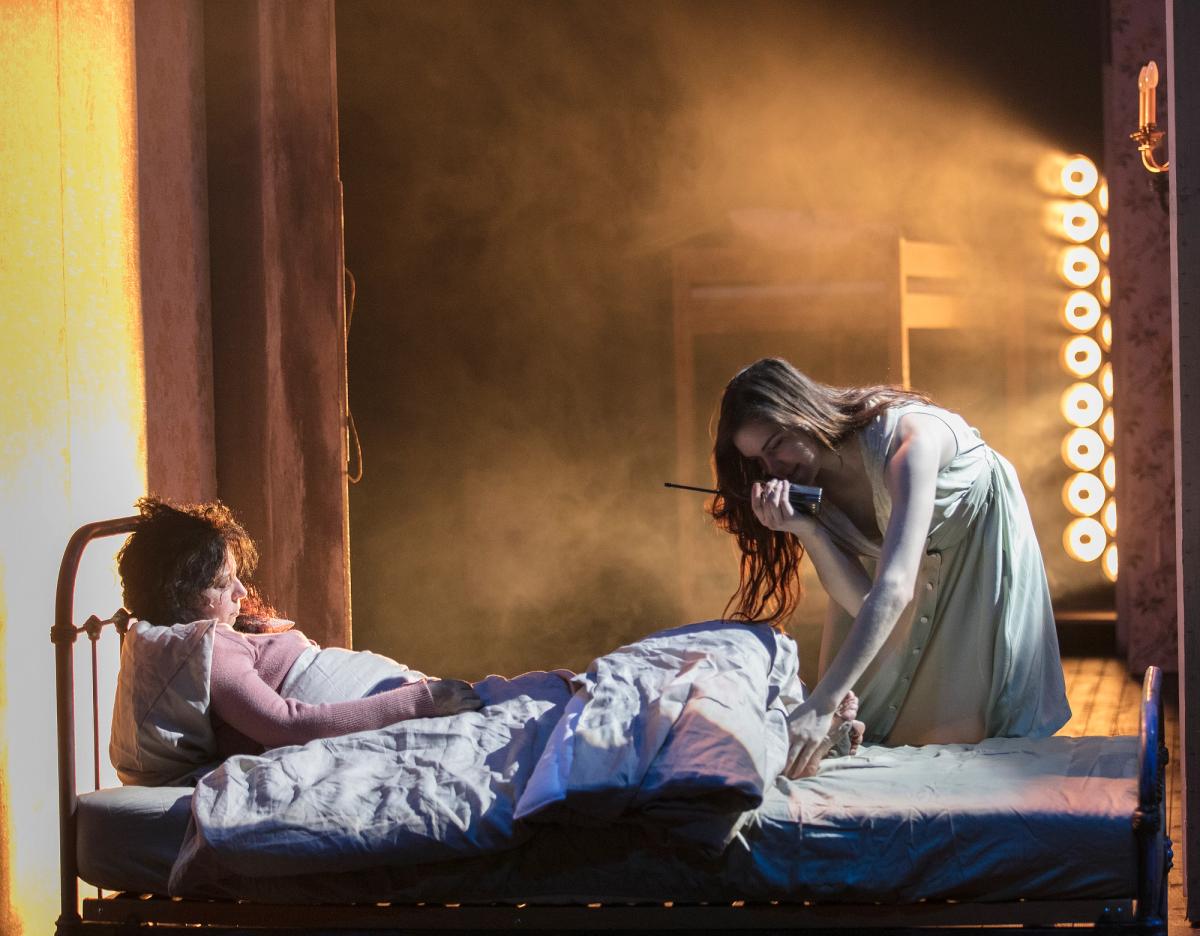
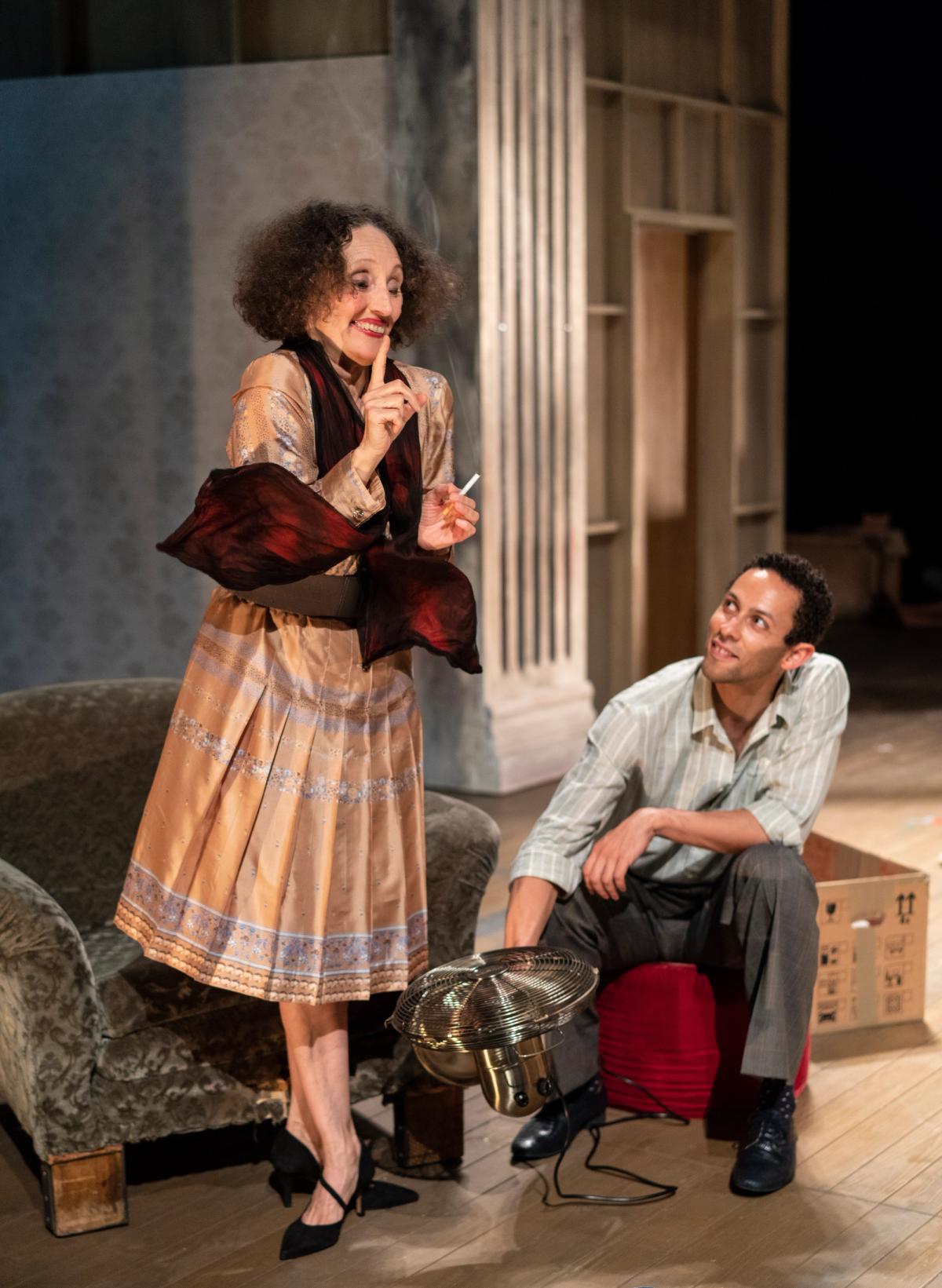
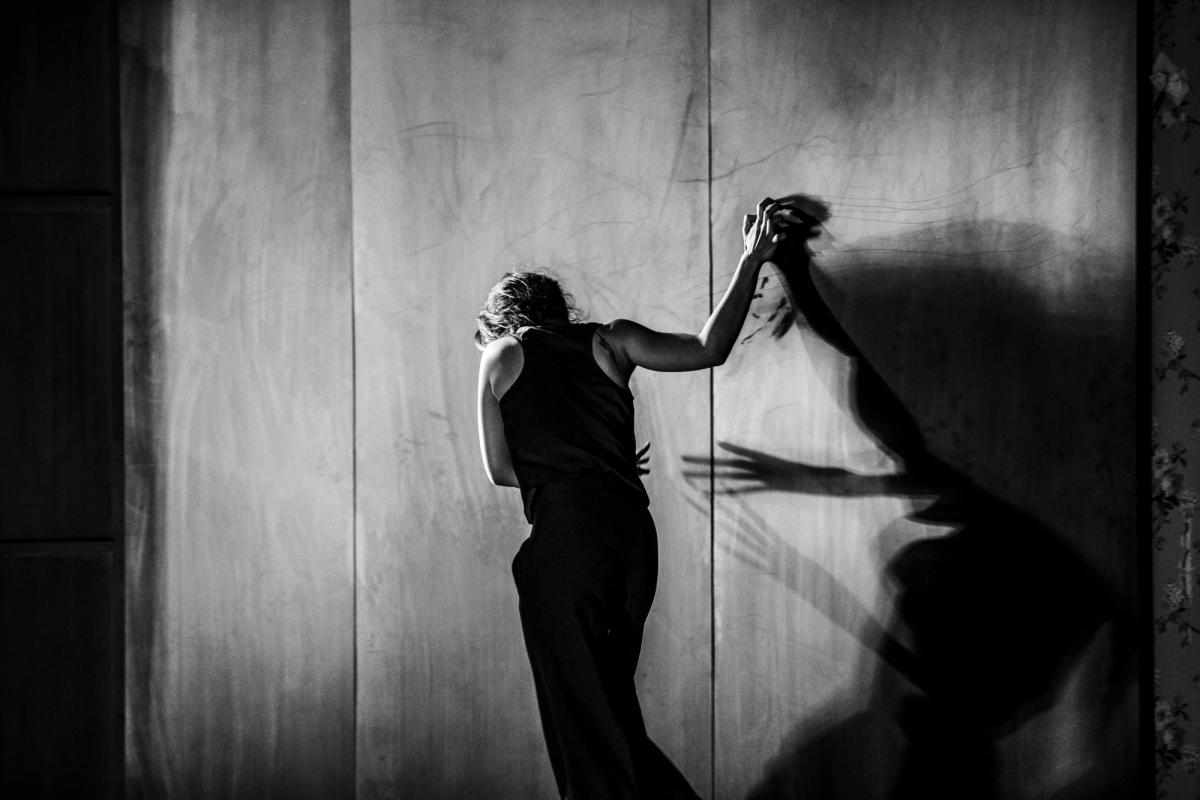
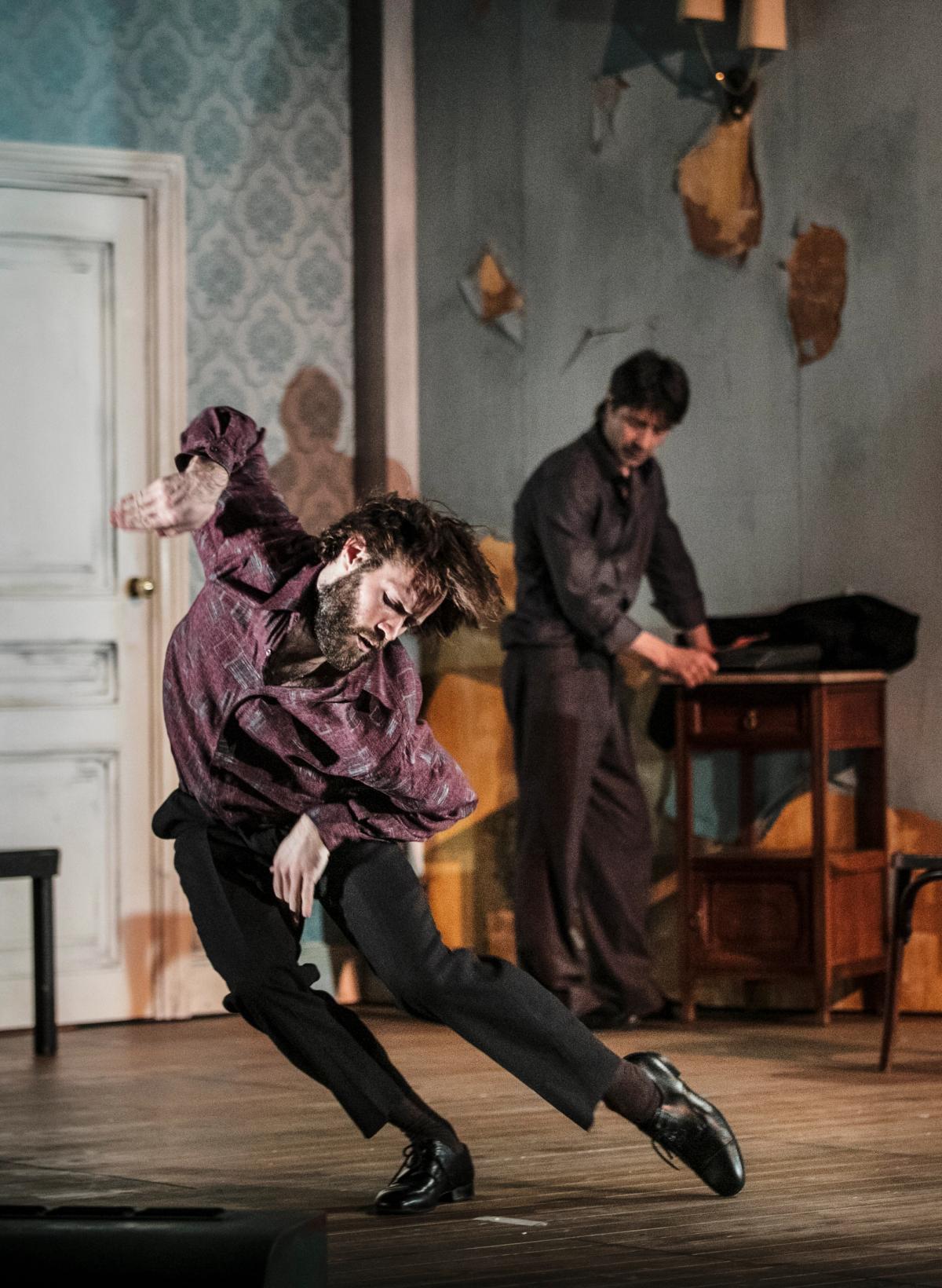
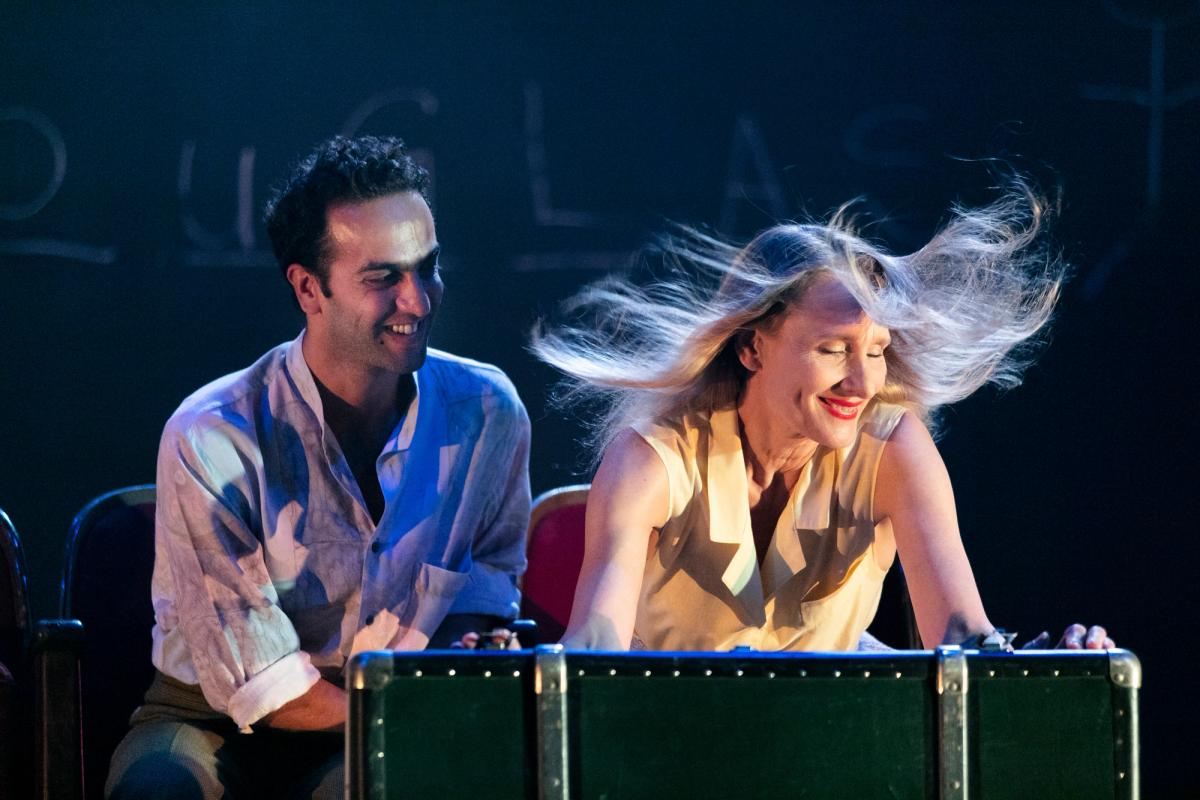
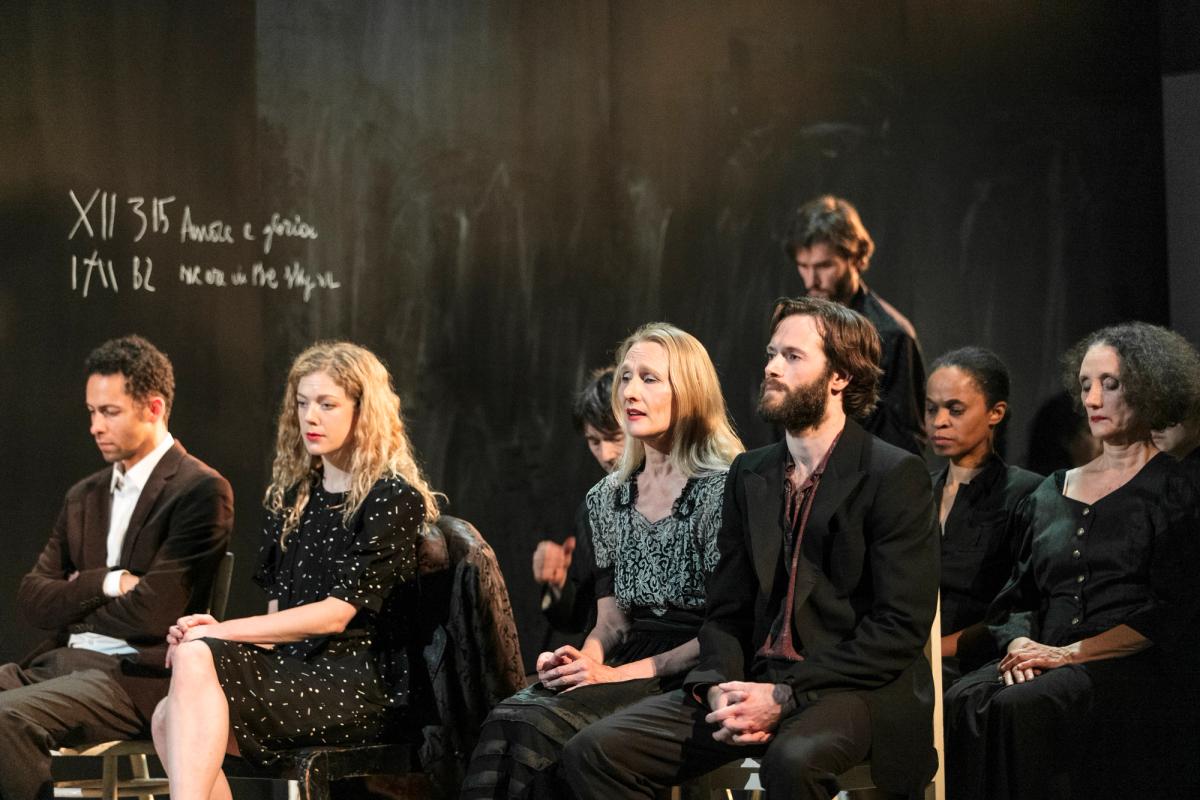
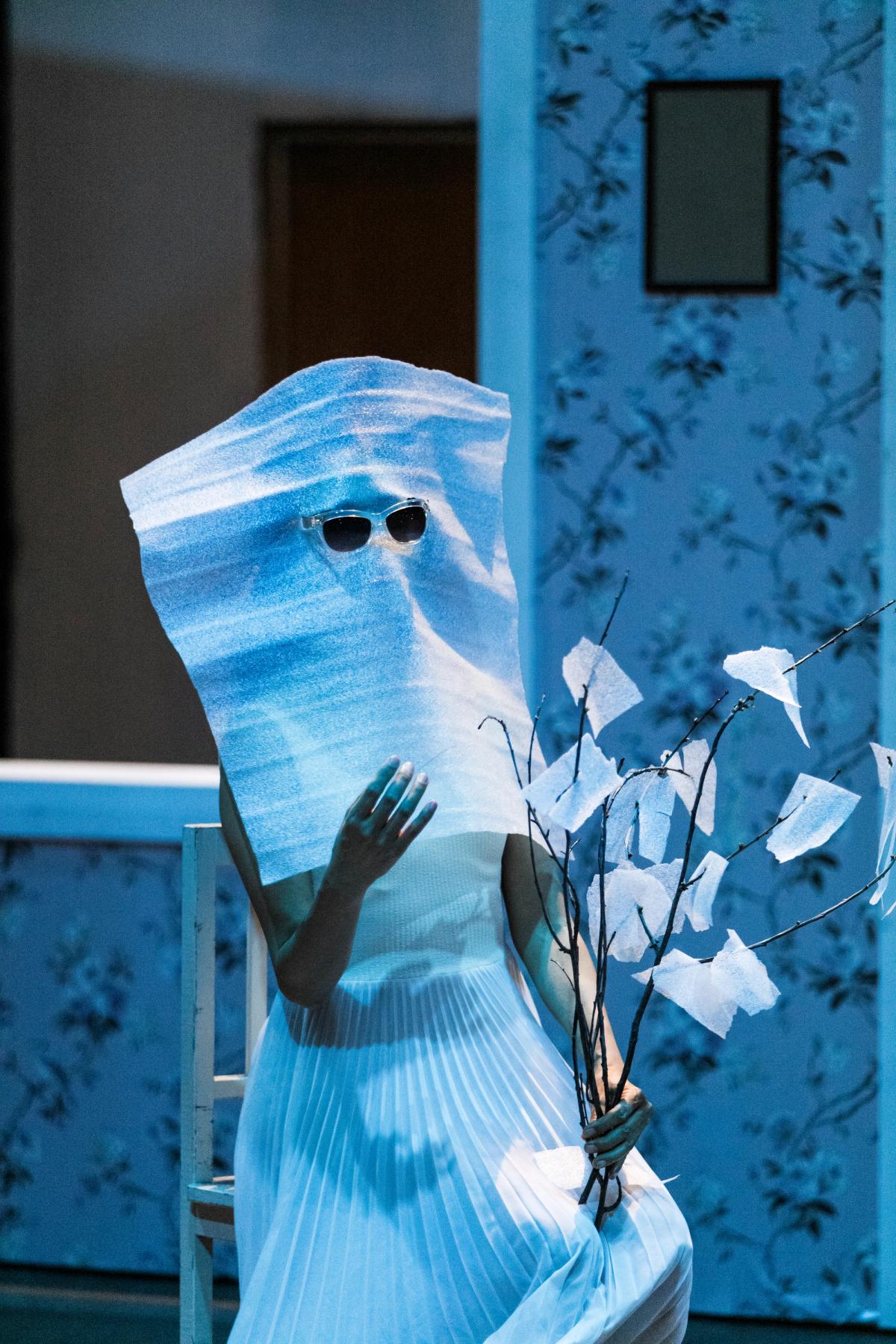
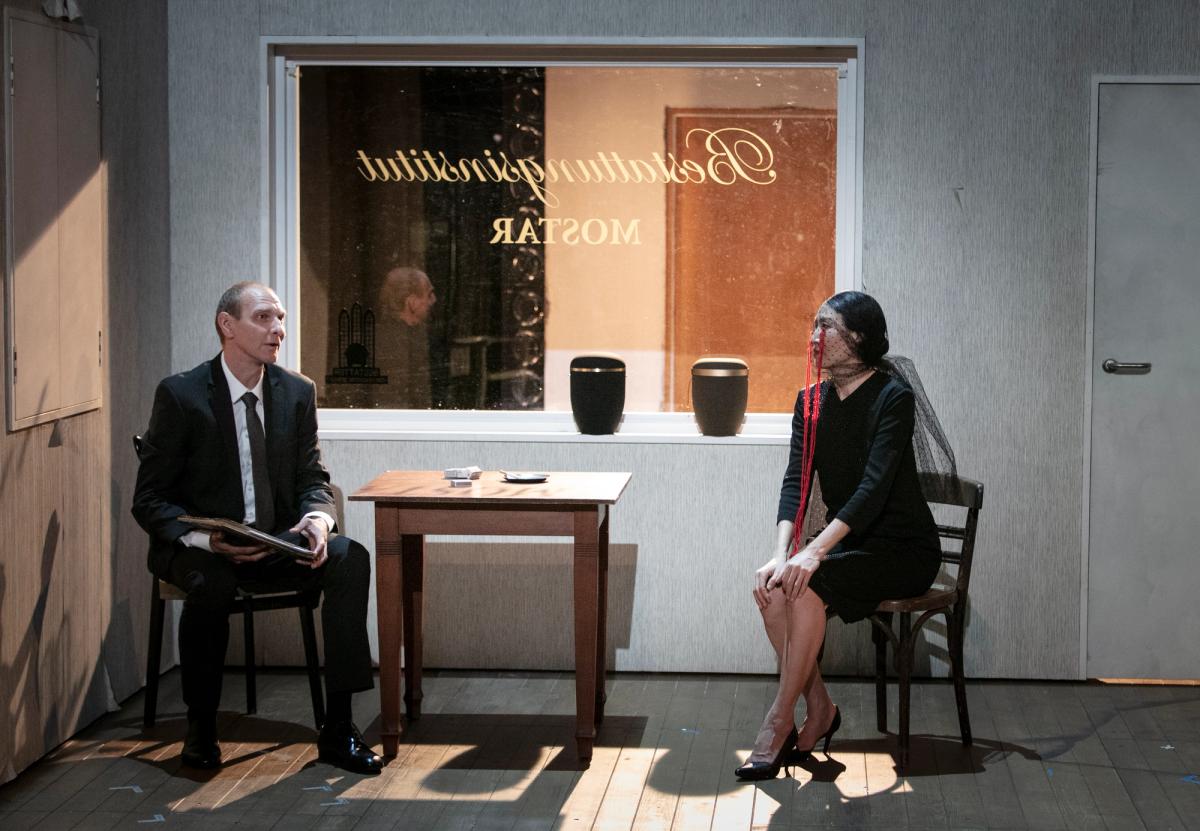
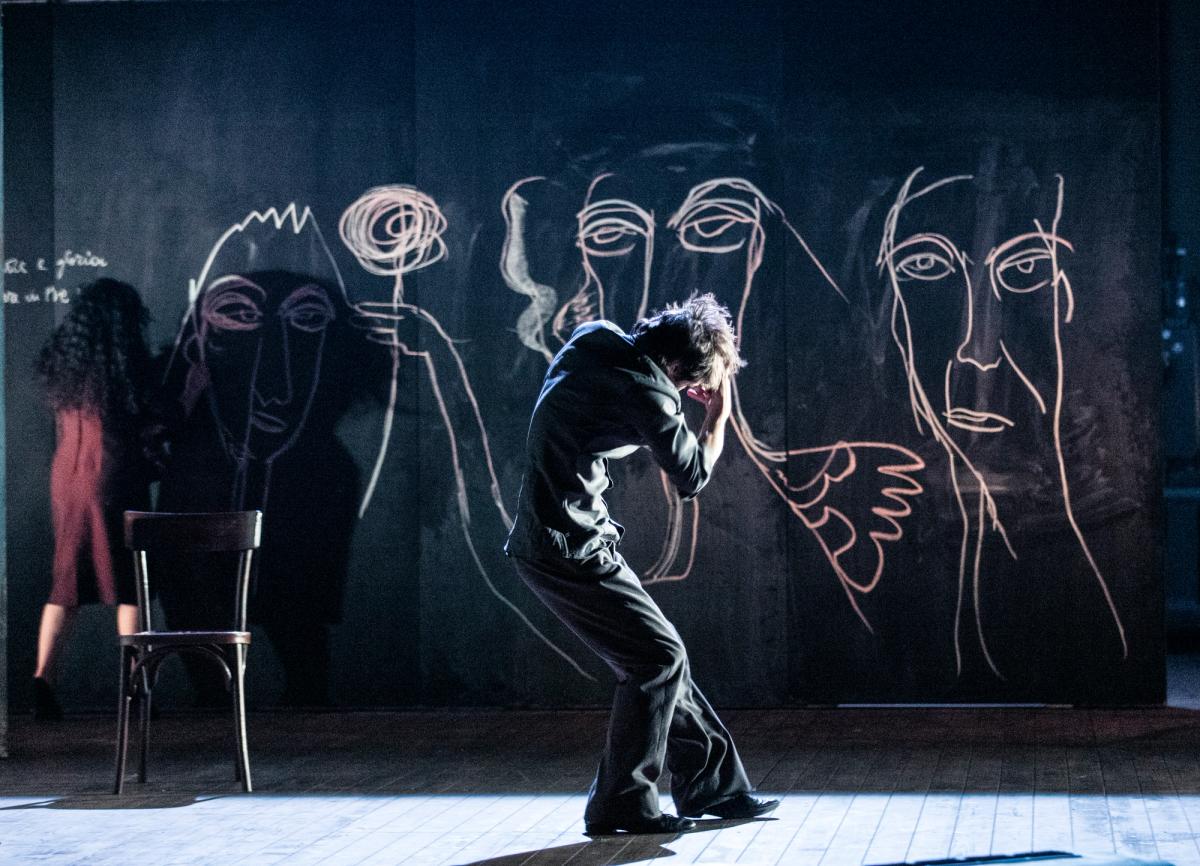
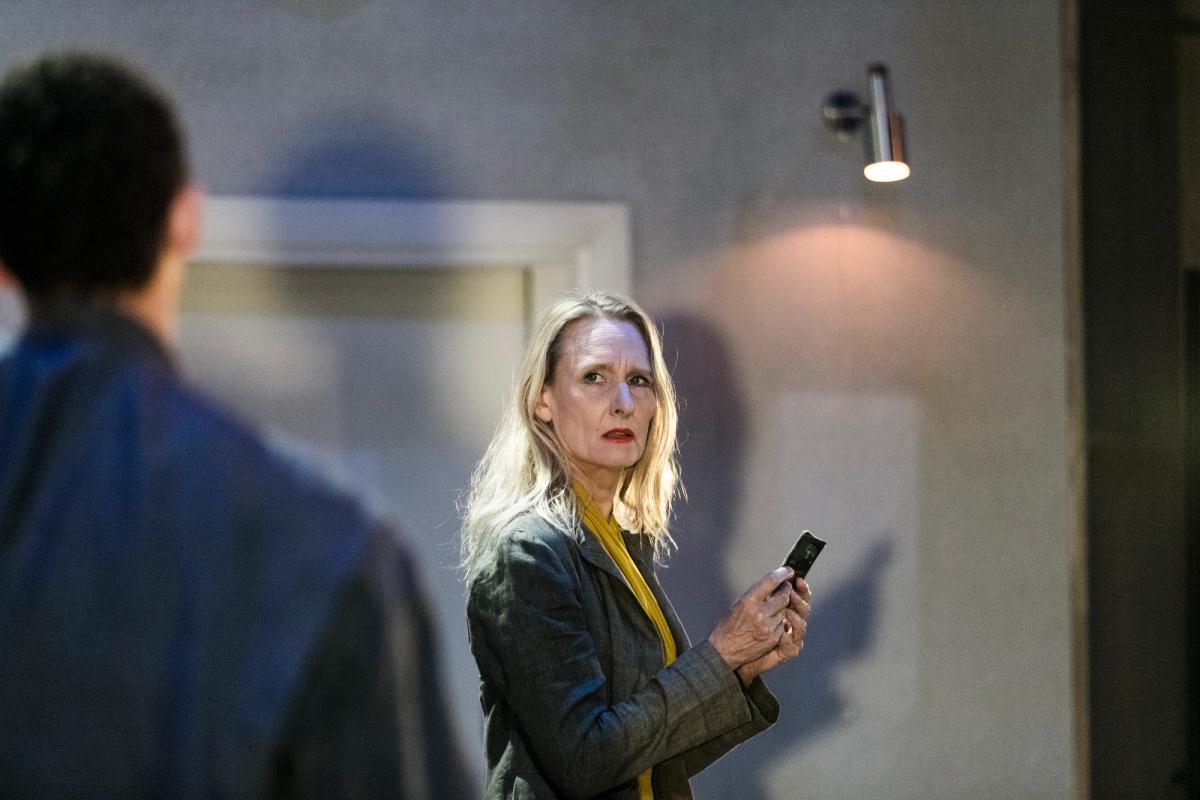
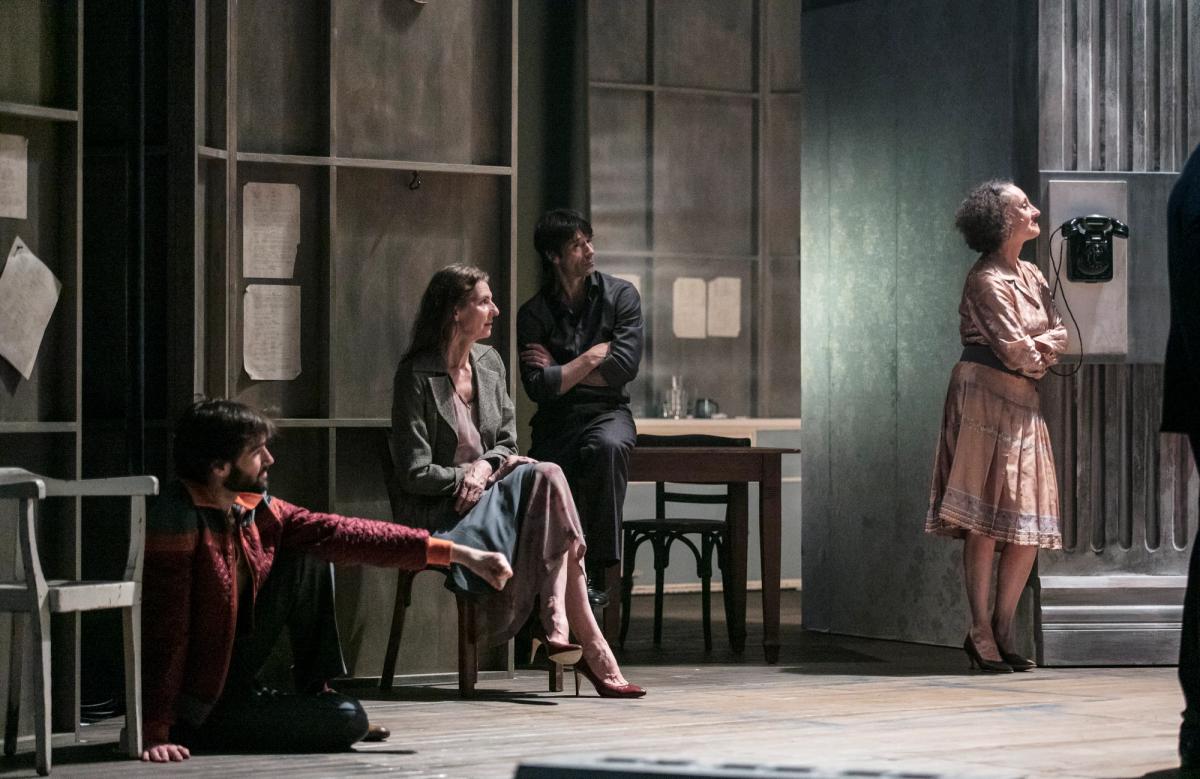
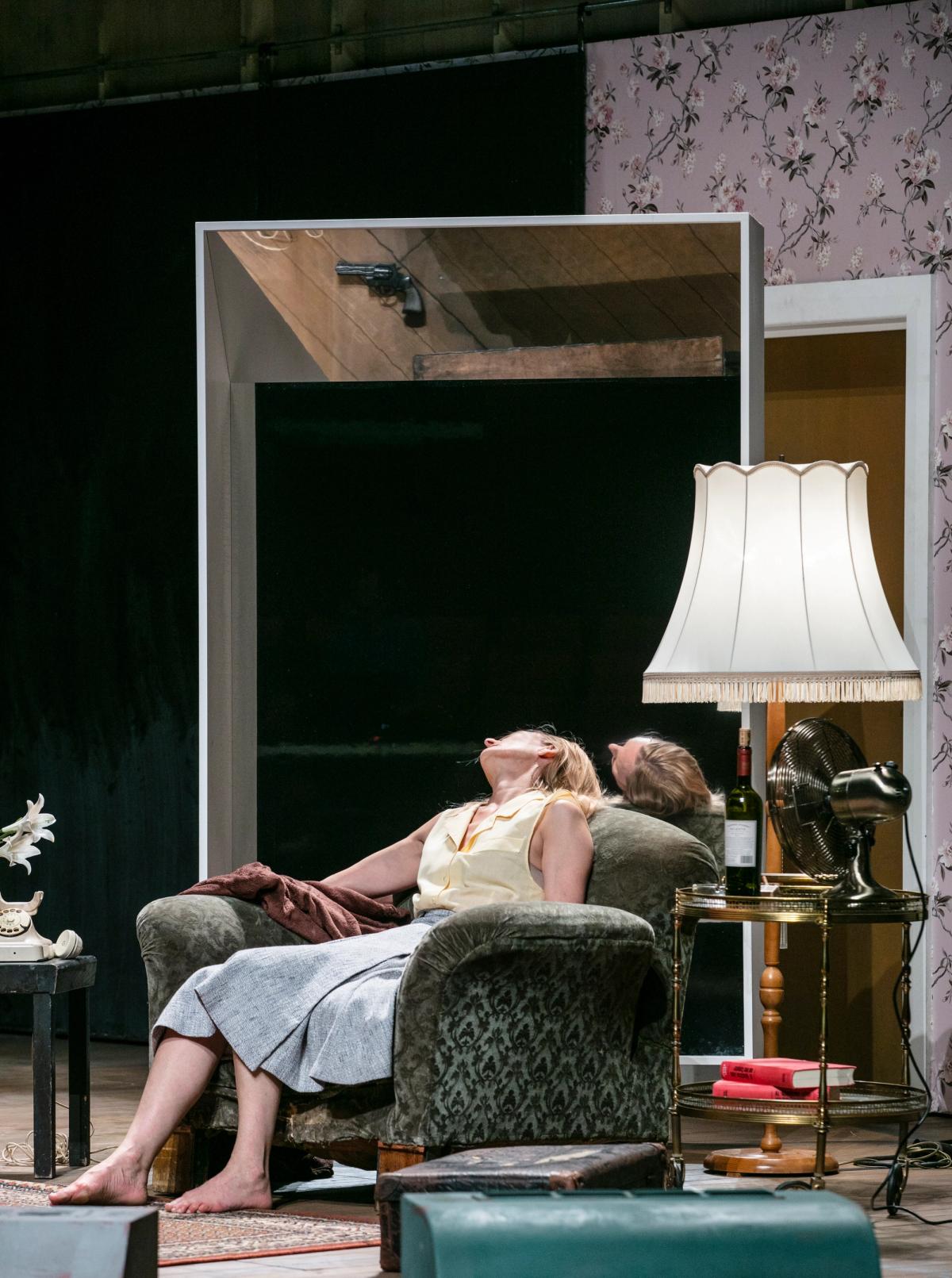
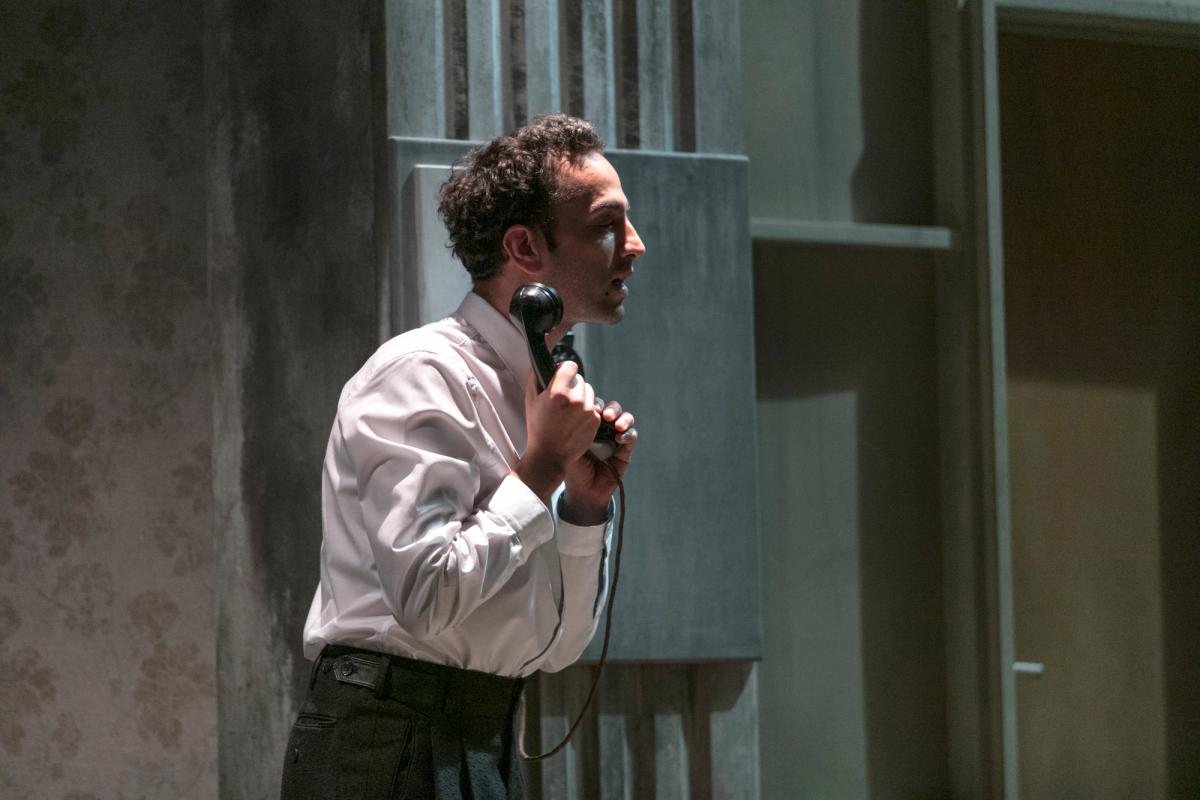
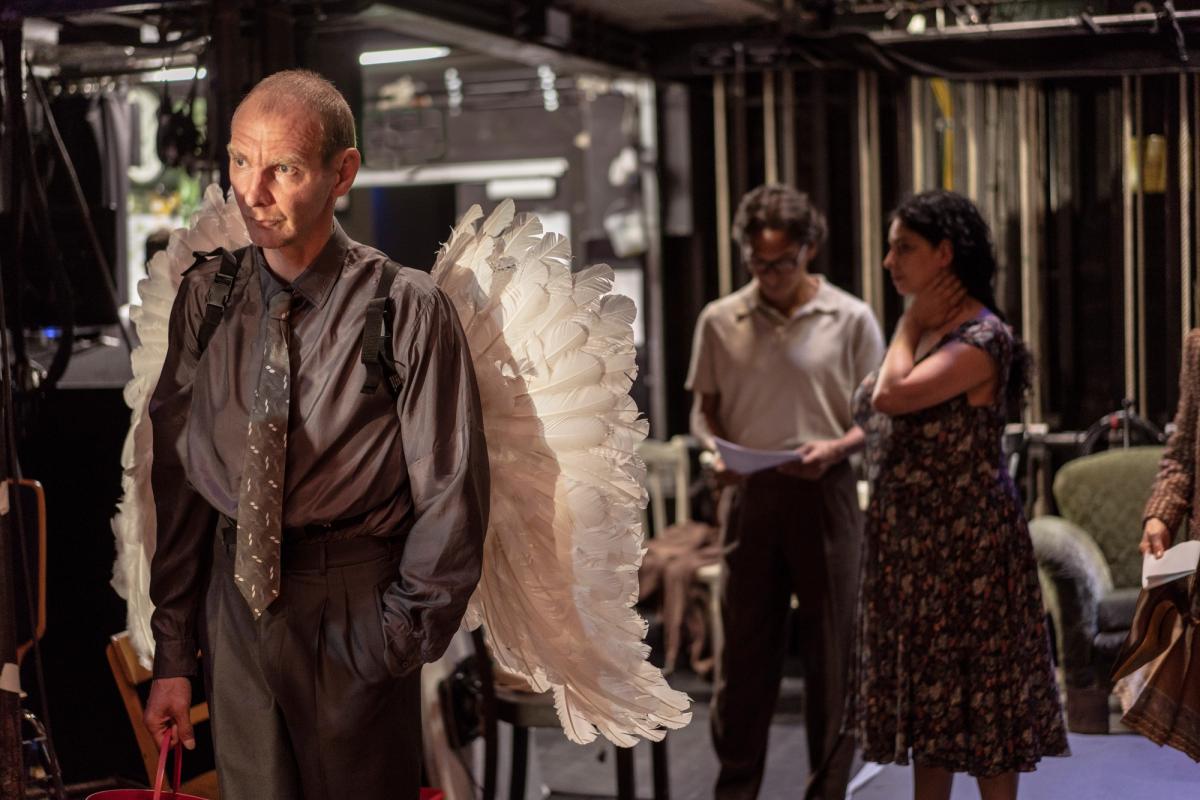
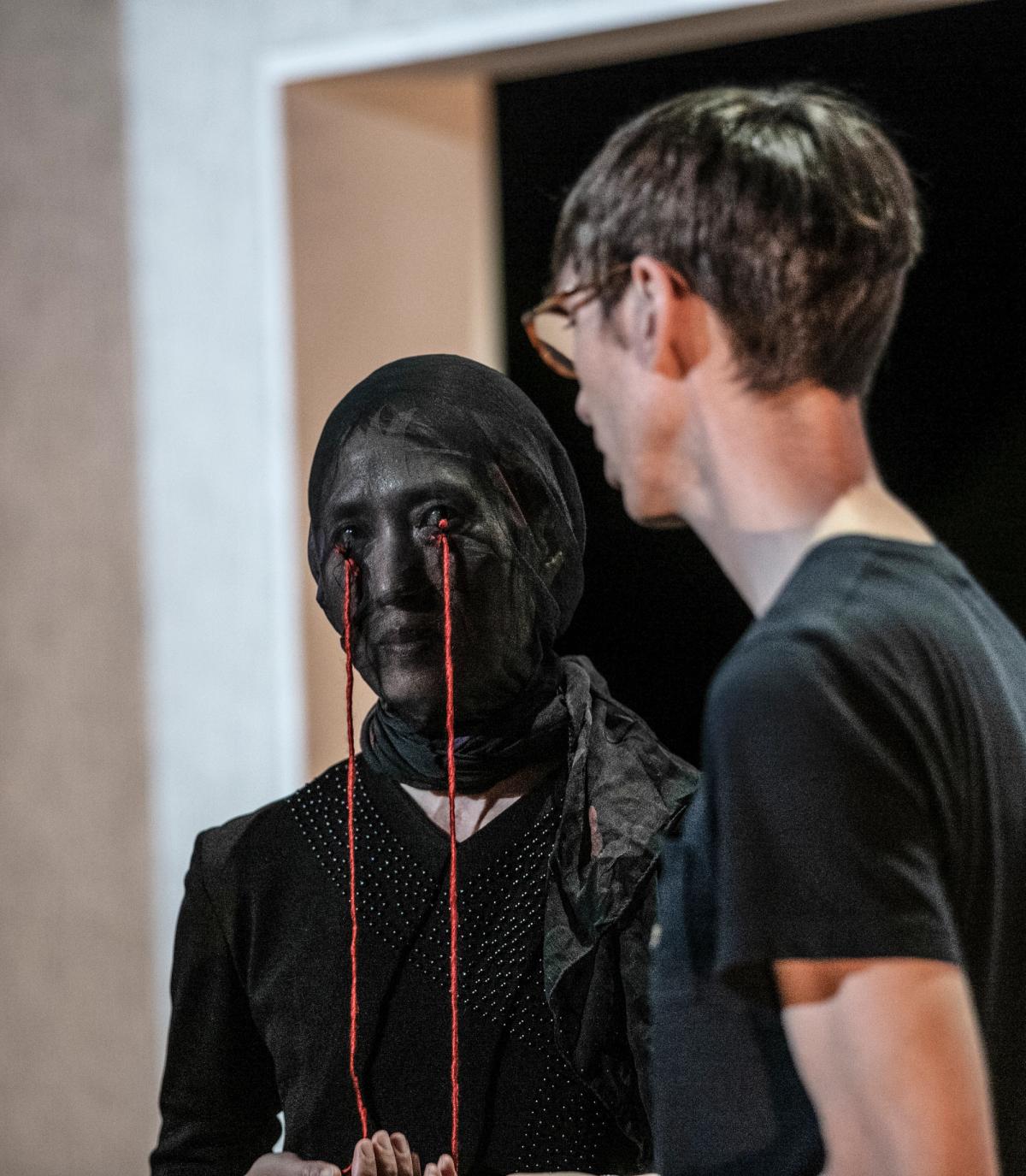
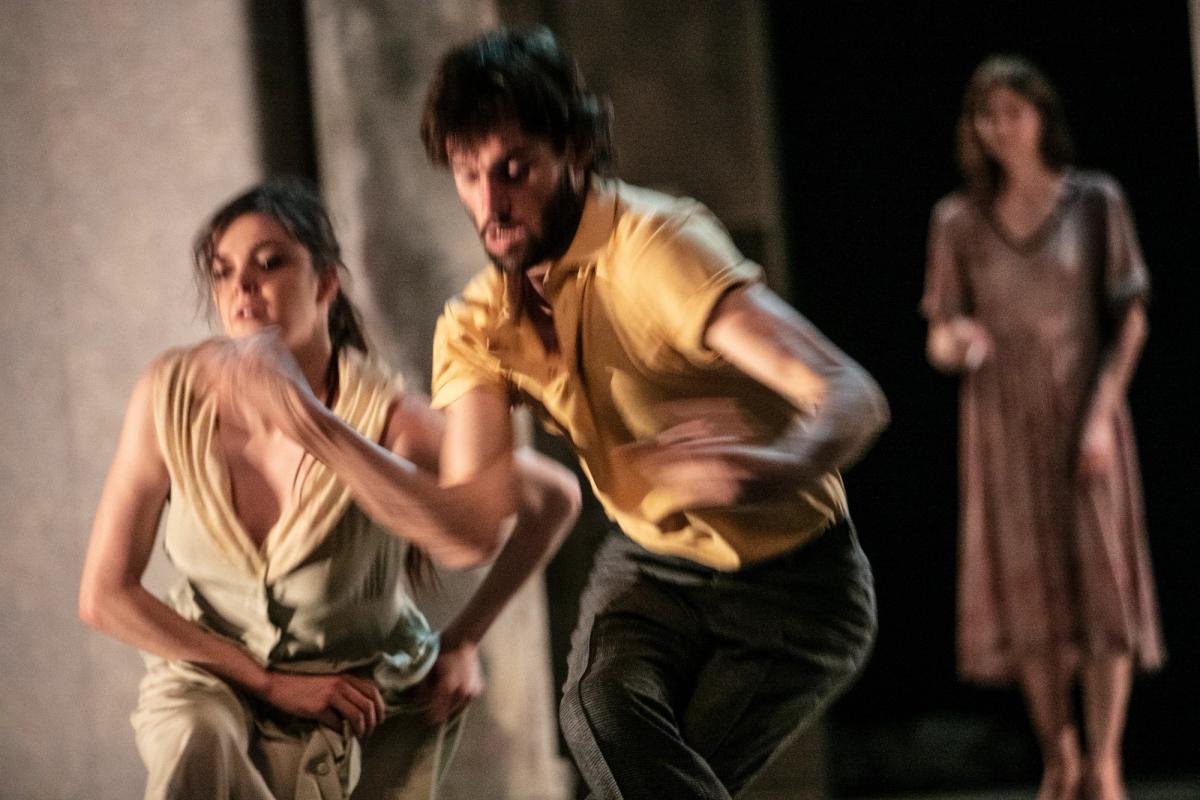
Spanning three and a half hours, Bon Voyage, Bob unfolds as a sprawling mosaic of stories. The work draws on conversations with the ensemble, re-staged as fragments of lives in flux: moments of loss, surreal encounters, flashes of absurd humour. Text-driven scenes overlap with passages of dance, all set against Alex Eales’ revolving interiors, which open and close like the frames of an endless film reel. The piece mirrors the cinematic flow of memory itself — discontinuous, disorienting, but saturated with emotion.
At its core, the piece is a meditation on death, but it resists solemnity. A eulogy may dissolve into a dark joke, a tender memory may slip into a grotesque caricature. The constant shift between registers — tragic, comic, dreamlike — generates an atmosphere of both estrangement and recognition. Reviewers noted the surreal detachment of the world Øyen created, where grief and tenderness coexist with theatrical wit.
A melancholy kaleidoscope of stories and images, carried by the ensemble’s outstanding dancers.
More than a single narrative, Bon Voyage, Bob is a collective portrait — a chorus of voices held together by the company’s extraordinary performers, many of whom had worked with Bausch for decades. It signalled the beginning of a continuing relationship between Øyen and the Wuppertal ensemble, later extending to projects such as his direction of Bausch’s Sweet Mambo and collaborations with dancers in other contexts, from Paris Opera Ballet to the contemporary productions of winter guests, including Antigone.
Alan Lucien Øyen signs a sprawling work on death and memory, oscillating between gravity and absurd humour.
Videos
Trailer